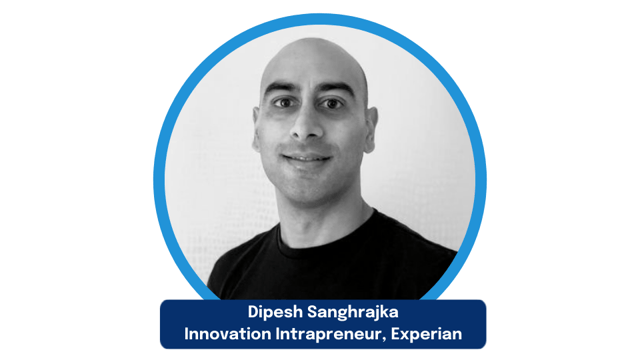Value Exchange is Product Management

Dipesh Sanghrajka, Innovation Intrapreneur at Experian, talks about what it takes to drive change from within an organization while understanding both the customer and the competition.
Proposition managers never work alone. As leaders of enterprise innovation, they are constantly looking outward and forward, using new data sources to drive change as part of a cross-functional corporate ecosystem.
Dipesh Sanghrajka has a deep understanding of these interdependencies, having spent the last two decades working in both product development and proposition development across industries including consumer electronics, telecommunications, and information services.
“I get asked how different teams work together and I use the analogy of a book,” explains Dipesh. “A proposition manager is like the author; they write the story. The product manager creates the characters, which are often the product or the service. The marketing manager is the person who tells the story to the right people at the right time in the right place.” Together, these teams create a promise to customers that their solution will provide value.
When it comes to carrying through on these promises to customers, it’s crucial to create a balanced value exchange. A value exchange is considered balanced when 'what a company gives' equates to 'what customers get' from a product or service, taking into account both the rational needs and emotional wants of those customers. Striking the right balance between these forces is a key to successful product and proposition development.
In this episode, you’ll learn about the difference between product development and proposition development, the importance of having a balanced value exchange, and how to drive innovation and experimentation at large organizations.
Here are the highlights:
- The difference between product development and proposition development (2:57)
- The definition of value exchange and the forces that drive it (4:11)
- How does information on competitors inform the proposition management process (7:17)
- The differences between being a product manager in a physical product and a digital product (12:05)

Subscribe now!
Get our new reports, case studies, podcasts, articles and events

.png?width=80&name=Untitled%20design%20(1).png)